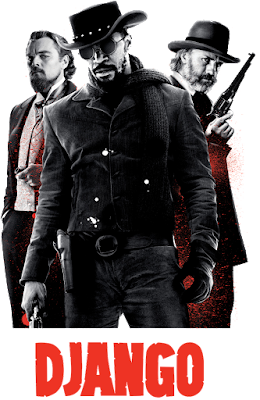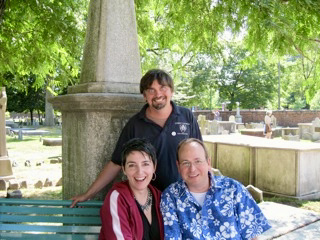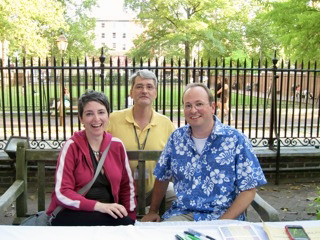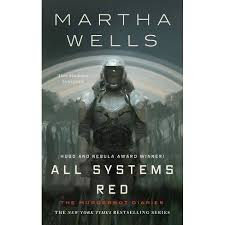Our benevolent overlords here at SleuthSayers, Robert Lopresti and Leigh Lundin, give us wide latitude over the topics we want to focus on. For which I’m very grateful. But since this is a mystery writing blog, I thought, why not write about mysteries?
I’ve argued long and
loudly that mysteries and thrillers are really no different from any other form
of literary expression. And vice versa. I once asked a reviewer if a general fiction book I was working on could be considered a thriller. She asked, “Does it have a gun?” I said yes. “Does it kill somebody?” Yes, a
mafia thug. “Then it’s a thriller.”
And she reviewed it.
Though to be fair, there are a few guidelines to follow if you want to write within the genre. First off, you need a mystery. A puzzle to be solved. And a protagonist who is launched into solving it - unwillingly, eagerly or professionally. The book ends with the solution revealed, though it doesn’t have to be clear cut or definitive. That’s about it. Everything else is up for grabs.
Mysteries are also
quest stories. Beginning with the Odyssey,
quests are probably the most frequently employed plot convention. If you’re going to solve a mystery, you have
to venture into the world to find clues, analyze evidence, and doggedly canvas
the likely participants. I think it was
Ross MacDonald who said mysteries are about detectives driving around in cars
and interviewing people. Essentially,
there’s something that needs to be learned, and someone on a mission to
discover what it is.
There are elements of
danger for the protagonists – wicked characters who don’t want the mystery
solved, or malign bureaucracies who’d rather just let things be. You don’t have to be Mickey Spillane to
clothe your story in a mood of menace and imminent peril. Usually the challenges are made of
misdirection, dishonesty and obfuscation.
So it’s not just a matter of being quicker on the draw, the hero has to
have a good analytical mind to navigate through the murky waters and overcome
obstacles constantly thrown up by the opposition.
So by definition,
mysteries are solved by smart, determined and resourceful people, who have the ability to perceive the
psychology of criminal minds, without having to be criminals themselves (though
sometimes they are).
Often the protagonist is the reader herself. The puzzle is laid out in the unfolding story, and the thrill is trying to figure out what the hell is going on.
I think Gone Girl is among the most brilliant mysteries of all time, though there’s no intrepid detective central to the story. You may argue that it’s more a thriller, and thrillers can have no mystery involved at all, the suspense derived from other plot details (the bomb beneath Grand Central is going to blow on New Years Eve!), but those are pure thrillers. Mystery thrillers need at least the skeleton of a mystery at its core (I’ll refer you to Lee Child).
What sets mysteries
apart is there’s an intellectual component. A figuring out. A puzzle, a literary crossword, acrostic,
jigsaw, Rubik’s Cube.
I don’t see these
things as restrictions. In fact, I believe
they make for better books, because the writer is forced to have a well-formed plot. Usually characters are the most engaging
features of a good mystery, so the plot doesn’t have to be an intricate
brainteaser, but it has to be there, and believable and satisfying once
resolved.
As a genre that
encompasses the psychological, historical, hard boiled, sci-fi, romantic,
fantastical, Western, closed-room Victorian, and on and on, there’s plenty
there to suit everyone’s tastes.
One of the most appealing features of good mysteries are what I call mini mysteries. Those ancillary stories embedded in the plot where the protagonist has to solve something that is necessary to move along his/her quest. (Whose DNA was also there at the murder scene? The name Joey was on a slip of paper in the victim’s pocket. Who the hell is Joey?) The reader gets almost the same charge out of solving these incremental steps as the story overall, and they help keep the pace ripping along. Sometimes these mini mysteries are red herrings, misleading trails. Sometimes a red herring consumes most of the plot, which is fine. Near the end of a book, you’re thinking, oh no, if it wasn’t that evil steel-foundry plutocrat who killed the Swedish biology professor, who was it?!
I still maintain that great mysteries are great literature. And some recognized literary fictions are in fact gripping crime novels (I refer you to The Great Gatsby and The Name of the Rose).
It really doesn’t matter at the end of the day. A wonderful book is a wonderful book no matter how it fits into literary taxonomy.
.jpg)

























